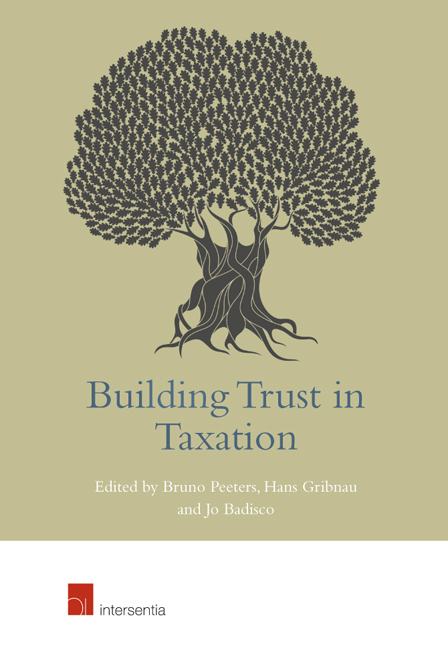Book contents
- Frontmatter
- Preface
- Contents
- List of Authors
- Introduction
- PART I TAXATION, STATE AND SOCIETY: RECIPROCITY AND THE LIMITS OF THE POWER TO TAX
- PART II Trust and morality: tax governance in need of transparency
- PART III International taxation: in search of democratic legitimacy
- Improving Democratic International Tax Governance: On the Power of Citizens, Transparency and Independent Watchdogs
- International Tax Justice Between Machiavelli and Habermas
- International Taxation without International Representation? Legality and Legitimacy in Global Tax Governance
- Tax Sovereignty and the Globalised Process of Law-Making: The Proposal of the UN Code of Conduct on Cooperation in Combating International Tax Evasion
- PART IV Behavioural aspects of taxation and trust
International Taxation without International Representation? Legality and Legitimacy in Global Tax Governance
from PART III - International taxation: in search of democratic legitimacy
Published online by Cambridge University Press: 21 September 2018
- Frontmatter
- Preface
- Contents
- List of Authors
- Introduction
- PART I TAXATION, STATE AND SOCIETY: RECIPROCITY AND THE LIMITS OF THE POWER TO TAX
- PART II Trust and morality: tax governance in need of transparency
- PART III International taxation: in search of democratic legitimacy
- Improving Democratic International Tax Governance: On the Power of Citizens, Transparency and Independent Watchdogs
- International Tax Justice Between Machiavelli and Habermas
- International Taxation without International Representation? Legality and Legitimacy in Global Tax Governance
- Tax Sovereignty and the Globalised Process of Law-Making: The Proposal of the UN Code of Conduct on Cooperation in Combating International Tax Evasion
- PART IV Behavioural aspects of taxation and trust
Summary
ABSTRACT
The majority of the world ‘ s peoples do not participate in global decision-making regarding who should tax, where, and what. They are excluded mainly because the international tax game is controlled by powerful players that jealously safeguard their outsized, privileged positions. The dominance of a few influential actors over the rest of the world brings into question the political legitimacy of the socalled ‘ international tax regime ‘, through which the global tax base and the world's resources are unevenly shared. Yet even when experts acknowledge the unjust impacts of this regime, their proposed reforms are all too often more top-down solutions without any input from those most adversely affected. These responses tend to overlook the existence of power relations and the plurality of fiscal and economic interests at play, focusing on outputs and disregarding the fact that the underlying problems in international taxation lay squarely on the failure to reach consensual agreement among nations. This chapter argues instead that a just world tax order requires a bottom-up approach, grounded on fundamental principles of legitimacy. By applying democratic and critical legal theory to the current practices of global tax governance, it offers a new way to think politically about fiscal relations among nation-states, and international tax law and policy.
INTRODUCTION
Global tax governance suffers from an ongoing legitimacy crisis due to the absence of proper venues for developing countries to fully participate and impact the process of international tax policy-making. A small number of rich countries have long dominated the field, imposing their wills globally through soft power mechanisms. Faced with growing public dissatisfaction with the outcomes of their chosen policy regimes, the same nations now claim that they are capable of, and committed to, meaningful change. This chapter argues that commitments to changing policies cannot suffice without changes to the institutional structures in which such policy deliberations will take place.
- Type
- Chapter
- Information
- Building Trust in Taxation , pp. 267 - 284Publisher: IntersentiaPrint publication year: 2017
- 1
- Cited by



